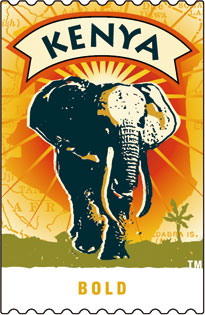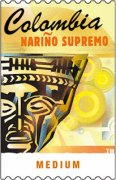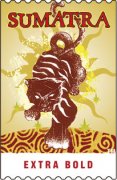African Kenyan Coffee for Starbucks

Kenya Coffee
Description: Kenyan coffee has multi-layered flavors and juicy acidity, perfect grapefruit and wine flavors, and moderate body.
Processing: washing method.
Location: Kenya is located on the equator on the Indian Ocean coast of east-central Africa, south of Ethiopia.
Similar coffee: kenyan coffee is most similar to esoteric coffee. In addition to the gazebo blend coffee ® available in summer, there are also promotional coffees such as East African coffee, some black apron products, etc.
Food pairing: grapefruit, berry, seedless raisin, raisin, orange.
Tasting suggestions:
Kenyan coffee has a unique taste, and there are few similar coffees. Still, it's worth comparing it to Ethiopian coffee. Taste the African acidity and citrus aromas that emanate from each coffee.
Kenyan coffee is characterized by a distinct fruity aroma. Try looking for this flavor in your coffee and notice how it feels in your mouth. One of the most common fruit fragrances is citrus.
More information about this coffee:
Unlike most countries of origin, Kenya has a formal coffee marketing organization that cups and grades each batch of coffee before it is sold at auction. Starbucks doesn't buy coffee at auctions; instead, our suppliers buy coffee they think Starbucks will like and send Starbucks samples.
Political conditions, drought and the cultivation of new high-yield coffee trees have kept Starbucks interested in Kenya as a coffee supplier.
Starbucks buys coffee primarily based on coffee flavor, which is why we don't assign Kenyan ratings (e.g.,"AA" or "A"). These grades represent only the size of the coffee beans.
Excerpts from Kenyan coffee
Drinking Kenyan coffee reminds me of standing in the middle of a sunflower field on a sunny summer day, letting the breeze pass. Aromas of tropical fruits are mixed with a well balanced unique aroma. When I brew it in the shop as iced coffee, customers always ask,"Is this really coffee?" I couldn't help laughing.
- Suwat Jiranusornkul, Learning and Organizational Development Sector Partner, Thailand
National Information
Population: 33.8 million
Area: 583,000 km2
Education: 85%
Life expectancy: 48 years
Fun fact:
Kenya Plateau is one of the most important agricultural production areas in Africa. Glaciers are found on Kenya Mountain, the second largest peak in Africa. The unique geological conditions are very suitable for wildlife survival, so it is also of great scientific research and economic value.
Agricultural products include tea, coffee, cotton, wheat, sugar, fruits, vegetables, dairy products, beef, pork, poultry and eggs.
Kenya declared independence from Britain on December 12, 1963.
Swahili and English are the official languages of Kenya.
Source: Starbucks official website www.starbucks.cn
Important Notice :
前街咖啡 FrontStreet Coffee has moved to new addredd:
FrontStreet Coffee Address: 315,Donghua East Road,GuangZhou
Tel:020 38364473
- Prev

South American Columbia Coffee selected by Starbucks
Colombian Coffee description: Colombian coffee is moderately mellow, smooth and smooth, and has a distinct nut flavor. This super coffee can only be produced in the Narino region. Processing: washing method. Location: Colombia is the most northwestern country in South America, bordering Panama in the west. Narino is a member of southwestern Colombia
- Next

Sumatran Coffee and low-Ink Sumatran Coffee
Sumatran Coffee and low Sumatra Coffee description: this coffee has earthy aromas and mysteries as well as an unusually strong flavor; it has a thick, deep earthy aroma. Sumatran coffee is very popular and is the best purebred coffee we sell. Processing: semi-washing method. Location: Sumatra is one of the largest islands in Indonesia.
Related
- Detailed explanation of Jadeite planting Land in Panamanian Jadeite Manor introduction to the grading system of Jadeite competitive bidding, Red bid, Green bid and Rose Summer
- Story of Coffee planting in Brenka region of Costa Rica Stonehenge Manor anaerobic heavy honey treatment of flavor mouth
- What's on the barrel of Blue Mountain Coffee beans?
- Can American coffee also pull flowers? How to use hot American style to pull out a good-looking pattern?
- Can you make a cold extract with coffee beans? What is the right proportion for cold-extracted coffee formula?
- Indonesian PWN Gold Mandrine Coffee Origin Features Flavor How to Chong? Mandolin coffee is American.
- A brief introduction to the flavor characteristics of Brazilian yellow bourbon coffee beans
- What is the effect of different water quality on the flavor of cold-extracted coffee? What kind of water is best for brewing coffee?
- Why do you think of Rose Summer whenever you mention Panamanian coffee?
- Introduction to the characteristics of authentic blue mountain coffee bean producing areas? What is the CIB Coffee Authority in Jamaica?

